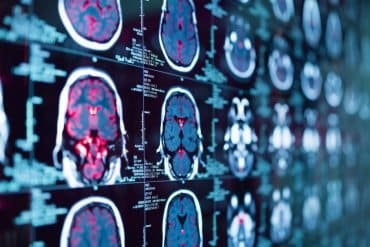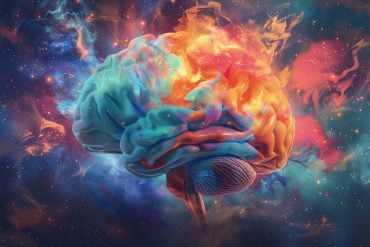Summary: Researchers present new findings about how stress takes a toll on the whole body.
Source: SfN.
Stress can have numerous harmful effects on the mind and body, both immediately and over long periods of time. New research reveals mechanisms by which stress exacts its toll throughout the body, from the brain to the male reproductive system, and points to potential paths for reducing the negative effects of stress. The studies were presented at Neuroscience 2017, the annual meeting of the Society for Neuroscience and the world’s largest source of emerging news about brain science and health.
Stress is a state of physical, mental, or emotional strain resulting from adverse or demanding circumstances. Although some level of stress is inevitable — and even beneficial — chronic or excessive stress can wreak havoc on physical and mental health.
Today’s new findings show that:
- Stress experienced by fathers may alter gene expression in their sperm, potentially leading to less resilient offspring (Jennifer Chan, abstract 505.02, see attached summary).
Childhood trauma can result in altered patterns of gene expression and elevated stress hormones, biomarkers that may help identify and treat young trauma victims. - Controlling signaling in brain cells called astrocytes may be an effective way to prevent heightened fear and anxiety responses associated with post-traumatic stress disorder.
- Newborn neurons in the hippocampus, a brain region that processes memory, can decrease effects of stress and symptoms of mental illness in mice.
- Microbes found in soil can help guard against stress, vulnerability, and illness in mice after inadequate sleep.

“Taken as a whole, these studies illuminate our understanding of the many negative effects of stress on the brain, whether early in life or as adults, and spur optimism about our ability to address these impacts,” said press conference moderator Bruce McEwen, PhD, of Rockefeller University, an expert in the body’s response to stress.
Funding: This research was supported by national funding agencies such as the National Institutes of Health, as well as other public, private, and philanthropic organizations worldwide. Find out more about the effects of stress on the brain on BrainFacts.org.
Source: Emily Ortman – SfN
Publisher: Organized by NeuroscienceNews.com.
Image Source: NeuroscienceNews.com image is in the public domain.
Original Research: The study will be presented at Neuroscience 2017.
[cbtabs][cbtab title=”MLA”]SfN “Harmful Effects of Stress on the Brain and Promising Approaches for Relief.” NeuroscienceNews. NeuroscienceNews, 13 November 2017.
<https://neurosciencenews.com/stress-brain-7936/>.[/cbtab][cbtab title=”APA”]SfN (2017, November 13). Harmful Effects of Stress on the Brain and Promising Approaches for Relief. NeuroscienceNews. Retrieved November 13, 2017 from https://neurosciencenews.com/stress-brain-7936/[/cbtab][cbtab title=”Chicago”]SfN “Harmful Effects of Stress on the Brain and Promising Approaches for Relief.” https://neurosciencenews.com/stress-brain-7936/ (accessed November 13, 2017).[/cbtab][/cbtabs]






